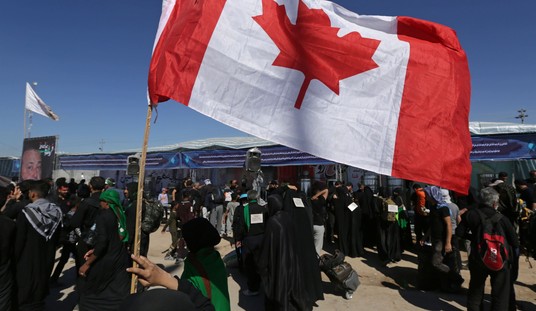This has the potential to raise the same issues as the revelations about the NSA’s PRISM and BLARNEY programs did. In the aftermath of the 9/11 attacks, the CIA partnered with the New York City Police Department to improve intelligence gathering practices in general — and perhaps a little too specifically. The Inspector General of the CIA warned that while no laws have apparently been broken, the relationship may be too close for comfort now with the American public:
The CIA inspector general’s report — completed in late 2011, but just declassified in response to a Freedom of Information Act lawsuit by The New York Times — raises concerns about the relationship between the organizations.
The investigation found “irregular personnel practices” and “inadequate direction and control” by CIA managers “responsible for the relationship.”
“As a consequence, the risk to the Agency (CIA) is considerable and multifaceted,” said a memo from Inspector General David Buckley to David Petraeus, who was the CIA director at the time.
“While negative public perception is to be expected from the revelation of the agency’s close and direct collaboration with any local domestic police department, a perception that the agency has exceeded its authorities diminishes the trust place in the organization.”
What prompted the report? The Associated Press ran a story that the CIA had gotten too involved with intelligence gathering through the NYPD. The agency announced at the time that an internal investigation had exonerated itself:
The Associated Press reported that the NYPD Intelligence Division dispatched CIA-trained undercover officers into minority neighborhoods to gather intelligence on daily life in mosques, cafes, bars and bookstores.
It said police have used informers to monitor sermons during religious services and police officials keep tabs on clerics and gather intelligence on taxi cab drivers and food-cart vendors, who are often Muslim, in New York.
The New York Police Department blasted the report as “fictional.”
“Even for a piece driven by anonymous NYPD critics, it shows that we’re doing all we reasonably can to stop terrorists from killing more New Yorkers,” said police spokesman Paul Browne.
The CIA has also previously said that suggestions that it engaged in domestic spying were “simply wrong.”
The secret-until-now IG report seems to reach a more nuanced conclusion. What else might be meant by the impact of “irregular personnel practices” and “inadequate direction and control” by CIA managers “responsible for the relationship”? Usually, one does not spot “inadequate direction and control” unless it results in inappropriate behavior; otherwise, the lack of control doesn’t manifest itself. That’s something normally determined by hindsight rather than foresight.
It also raises another question: why is the CIA interfacing with local law enforcement agencies at all? The FBI is responsible for domestic intelligence work, not the CIA, and the two agencies are supposed to be working more closely together on that effort after the PATRIOT Act and FISA amendments adopted after 9/11. Why isn’t the FBI working with the NYPD intelligence units, rather than the CIA? That would make more sense, and give the effort better legal and political cover, especially since any action on terrorism conducted within the US would have to be adjudicated by federal courts, not military commissions. The FBI is better suited to deal with those contingencies than the CIA.








Join the conversation as a VIP Member